This year’s pick of CEOs has had to work doubly hard in order to secure their positions on the list. The fact that the telecom sector is becoming increasingly nuanced as operators look to generate new revenue streams and partner with new value chain participants, means corporate leaders are having to juggle safe-guarding their existing revenues, managing costs, and trying to grow income all at the same time 
Much like 2011, the pattern of progress in the telecom sector across the Middle East and Africa in 2012 was impacted by a greater emphasis on operational matters on the part of service providers, with a particular focus on cost control and revenue expansion. Many of the CEOs included in this year’s list have worked tirelessly to slow and in some cases reverse margin erosion, while at the same time looking to find products and markets that could grow top-line revenue growth.
The manner in which service providers intend to deal with over the top players, and the development of new revenue sharing models to adapt to the modifying value chain, also appeared to garner much strategic attention on the part of CEOs on our list.
Managed services arrangements, tower sales or leasing deals, and brand extension exercises were some main areas of focus during 2012, and such efforts are likely to be ramped up in 2013 and beyond. The commercialisation of LTE networks in a number of markets across the region and the forecasted digital services revenues to be generated from such became a key discussion point in the latter stages of the year, though the full impact of such investments is only likely to be felt in the years to come.
We congratulate the CEOs that have been included in our list, and invite industry participants from across the region to offer their opinions on any personalities they believe we may have left out, and on what grounds. We’ll be sure to keep an eye on them in 2013.
Note: CEOs who have not been in their positions since January 1, 2012 were not eligible for inclusion.
1. Nasser Marafih, Qtel Group
Successfully raised Qtel’s stake in Wataniya Telecom, Asiacell and Tunisiana as the Qatari company looked to strengthen its equity position in its subsidiary companies. Competently navigated a competitive landscape domestically
At the end of 2012, Qtel Group announced the acquisition of a further 15 per cent stake in Tunisiana for a total consideration of US$360 million. The stake was purchased from the Tunisian government and raised Qtel’s shareholding in the company to 90 per cent.
This transaction followed Qtel’s successful offer to increase its stake in Wataniya Telecom Kuwait by 47.5 per cent to 92.1 per cent.
Elsewhere, Qtel doubled its shareholding in Asiacell in Iraq, raising its ownership in the subsidiary from 30 per cent to 40 per cent.
While the first half of the year was challenging for Qtel domestically, the second half progressed in a much more positive manner with the operator reporting that revenue to the nine months to end-September was up nine per cent year-on-year while EBITDA was up 10 per cent.
The operator continued customer trials with LTE subscribers over the period while also further expanding its Fibre to the Home programme.
2. Strive Masiyiwa, Econet Wireless Limited 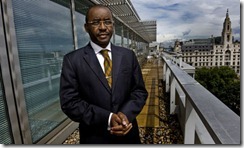
Rank in 2011: Not ranked in top dozen
Has conducted a war of attrition regarding his company’s claim to a five per cent stake in what is now Bharti Airtel Nigeria, having had the dispute locked in legal processes for many years
At the beginning of 2012 a court in Nigeria upheld Econet Wireless Limited’s five per cent claim to Airtel Nigeria, a cellco to which it was a founding shareholder in 2001. The court sided with the Zimbabwe operator that its stake had been unfairly cancelled, and any decisions since the cancellation are void.
“All actions and resolutions taken by the company since October 2003 at which Econet Wireless was entitled to be notified, and to participate in, as a shareholder, but was prohibited, are null and void,’ the judgement said. ‘This includes decisions to sell shares, issue shares, and also transfer shares to third parties.”
Econet Wireless went on to state it was seeking at least US$3.1 billion in damages, and was further buoyed when a court in Nigeria dismissed an application by Bharti Airtel to set aside the award made by the international commercial arbitration tribunal in favour of Econet Wireless.
Domestically, Econet continues to dominate Zimbabwe’s mobile telecom landscape having secured a US$362 million loan facility to finance network upgrades. The operator said 70 per cent of the funding will be spent on its Zimbabwean subsidiary.
3. Mikkel Vinter, Virgin Mobile Middle East and Africa 
Rank in 2011: 10
Having established the MVNO Friendi Mobile Group as the pre-eminent player in the Middle East region, Vinter was instrumental in seeing the company tie-up with Virgin Mobile Group, to together explore opportunities in the MVNO space in the MEA
In June 2012, Friendi Group and Virgin Group announced the signing of a strategic partnership agreement for the Middle East and Africa that would see the two companies merge their regional telecom operations to create a combined entity called Virgin Mobile Middle East & Africa (VMMEA).
The agreement saw Virgin Group become the single largest shareholder in the combined VMMEA entity, having contributed its stake in its South African entity, Virgin Mobile South Africa, and some cash to the new entity. Virgin Group holds a large minority stake in VMMEA, and Friendi Group’s founder and CEO, Vinter, was established as CEO of VMMEA, headquartered in Dubai.
4. Ahmad Julfar, Etisalat Group 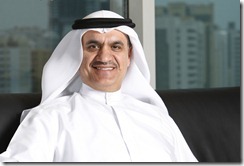
Rank in 2011: Not ranked in top dozen
In his first full year as Etisalat Group CEO, Julfar has overseen a deep strategic review that has touched upon everything from generating revenues from digital to allowing foreign equity ownership
At the start of the 2012, Etisalat hinted at a wide-ranging restructuring of its business to cope with current challenges.
The telco said that its board had discussed "the reduction and control of operating expenditures by initiating restructuring and outsourcing plans as a future strategy."
"These suggestions aim to enable Etisalat to cope with the pace of development witnessed in the ICT sectors and face financial challenges that telecom providers across the world, including Etisalat are facing due to rising costs of new technology necessary for organisations to increase their competitive edge in local and international markets, accompanied by a drop in revenues of the global telecom industry."
Later in the year Julfar was quoted as saying Emirates Investment Council was working on amending the law to allow foreign ownership of Etisalat shares. It remains unclear how much of the telco could be owned by overseas investors.
Rank in 2011: Not ranked in top dozen
Dabengwa has had the challenging task of filling the large shoes left by former CEO, Phuthuma Nhleko, when he took over as MTN Group CEO in March 2011. He has done a commendable job in maintaining MTN’s momentum across MEA
A look at MTN Group’s H112 results confirmed the company was ticking along nicely. First-half revenues rose by 17.5 per cent to ZAR66.5 billion (US$8.1 billion), impacted by solid growth in South Africa, Iran and Ghana, as well as by foreign exchange gains. On a constant currency basis, group revenue grew 12.5 per cent year-on-year.
MTN’s subscriber base grew by 6.9 per cent year-on-year to 176 million.
Group EBITDA increased 18.2 per cent to ZAR29.8 billion. On a constant currency basis, EBITDA grew 12 per cent year-on-year. The growth in EBITDA was mainly due to strong organic growth in South Africa and Iran, which grew local currency EBITDA by 10.5 per cent and 36.4 per cent respectively.
Rank in 2011: Not ranked in the top dozen
Continuing to drive and maintain mobile data usage in the Kingdom, and being amongst the first movers regionally to deploy LTE commercially
In March 2012 Mobily and Huawei announced the implementation of what they claimed to be the Middle East’s first commercial next generation Service Delivery Platform (SDP) involving landmark advances to nearly every segment of the operator’s nationwide mobile network.
The next generation SDP allowed Mobily to more rapidly implement new multimedia services collaborating with content publishers, service providers and all other players in the value chain.
In May, the operator signed an agreement with Ericsson for the supply of an Evolved Packet Core solution that supports 2G, 3G and 4G communications.
Evolved Packed Core is a flat, efficient, IP-based core network architecture supporting the next generation of mobile broadband. Combined with LTE access networks, Evolved Packet Core provides a whole new experience for Saudi users, with true broadband access virtually anywhere and a rich variety of multimedia applications.
Rank in 2011: 6
Du continues to outperform as a second entrant in a telecom market, offering highly differentiated services while at the same time generating significant returns for its shareholders
Du reported Q2 revenues rose by 12.9 per cent to AED2.5 billion (US$689 million), while net profit surged by 51 per cent to AED651 million.
The net profit margin (before royalty) stood at 26.6 per cent, up from 19.1 per cent in Q211.
Mobile revenues grew by a further 14 per cent year-on-year, reaching AED 1.9 billion, with drivers of performance in this segment continued to include growth in the company’s customer base, strong minutes of use, and data usage.
Du also bolstered its technology credentials by signing a number of significant agreements during the year, including an IT management service with Ericsson, a VSAT platform, as well as commercially launching LTE.
8. Elfatih M. Erwa, Zain Sudan 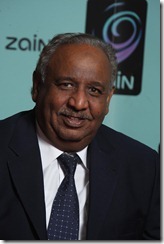
Rank in 2011: Not ranked in the top dozen
Overseeing the separation of a single network into two distinct operations in Sudan and South Sudan, while at the same time maintaining service to connected subscribers
South Sudan officially came into existence as an independent country in July 2011, and with that the responsibility of building new government institutions from the ground up commenced in earnest. This extended to the establishment of an independent telecom regulator, and the separation of network operations between Sudan and fledgling South Sudan.
Apart from the logical issues related to dividing a single network into two, Zain Sudan along with its peers has had to consider the impact of separating the two markets from both an operational and technical standpoint.
Zain Sudan spent tens of millions of dollars separating its operations into two, and Erwa forecast that 2012 would be a difficult year in Sudan with the country’s economic situation placing pressure on telecom industry revenues. Despite this outlook Zain Sudan still looked to invest up to US$280 million improving its infrastructure in the Republic of Sudan in 2012, with the operator’s CAPEX in South Sudan set to reach between US$60 and $80 million in the same year.
Rank in 2011: 2
Bharti Airtel has continued to add subscribers in Africa at an impressive rate, while maintaining the principles of cost efficiency and synergistic development
Bharti Airtel announced it had undertaken an end-to-end network transformation programme across its mobile operations in 16 African countries, which is the largest of its kind on the African continent. In partnership with Ericsson, the programme involved a comprehensive upgrade and expansion of network elements on all of Airtel’s African operations, including switching, radio, network management, data, charging, and consumer-services platforms and systems.
The network transformation is set to enhance Airtel’s network capacity and robustness and help deliver best-in-class services to customers at affordable rates. This also makes Airtel’s networks fully ready for next generation services that include high-speed data and value added services.
Rank in 2011: Not ranked in the top dozen
While Nawras has faced challenges with respect to maintaining top and bottom-line performance in 2012, the telco continues to place customer service at the heart of all its endeavours, to positive effect
In the first quarter of 2012 Nawras reported revenues fell by 2.7 per cent to OMR46.8 million (US$121.6 million), while net profit also fell by 19.1 per cent to OMR9.8 million.
The second quarter marked a stabilisation in the telcos’ operational and financial results, though its first half performance highlighted the competitive nature of the telecom market in Oman, and the on-going pressure on margins. Nawras closed the six months to end-June with a customer base of 2.03 million, representing a 4.4 per cent growth rate.
Despite these challenges, Nawras adopted a bold strategy based on focussing primarily on the factors within its own control, more so than looking to what other players are doing in the market and reacting to those factors. One area the operator chose to focus on was the surging demand for data, instituting a project it describes as ‘turbocharging’ its network, which in essence means upgrading the network for increased capacity and performance.
11. Naguib Sawiris, Wind Telecom, Orascom Telecom 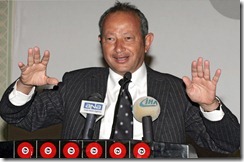
Rank in 2011: 8
Having sold a controlling stake in Weather Investments and Orascom Telecom Holding in 2011 to VimpelCom, Sawiris continued to exercise enormous influence in the telecom sphere in 2012
In characteristically brash fashion, late in 2012 Sawiris made an offer to invest as much as €5 billion (US$6.36 billion) to buy a large stake in highly indebted Telecom Italia. At Telecom Italia’s market value at the time of the offer, the investment would account for some 30 per cent of the company.
While the Telecom Italia board ultimately rejected Sawiris’ bid, it showed the influence he continues to wield across telecom markets the world over.
Rank in 2011: Not ranked in the top dozen
In the face of on-going security and economic challenges in Afghanistan, Roshan continues to operate with a view to improving the lives of average Afghanis, while also providing a return for investors
In the middle of 2012, Roshan announced it had surpassed six million active subscribers less than one year after the company became the country’s first operator to cross the five million mark.
The operator said that it has also experienced significant growth in non-voice services and, in particular, in providing data products to its customers.
Since inception in 2003, Roshan has invested more than US$550 million in network infrastructure and now reaches 60 per cent of the population in Afghanistan.

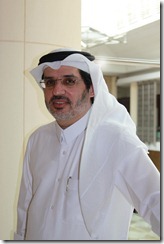
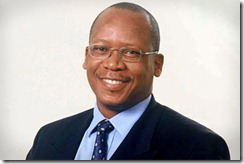
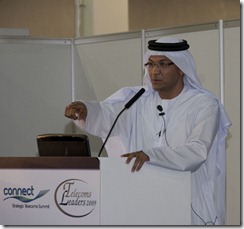
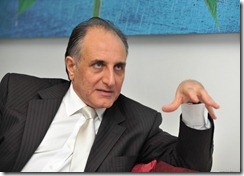
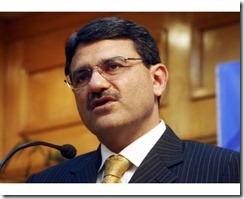

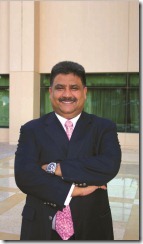




0 comments ↓
There are no comments yet...Kick things off by filling out the form below.
Leave a Comment